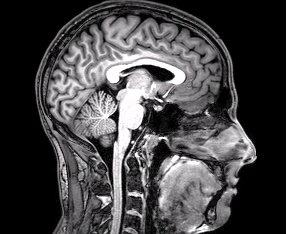Your family, friends, or boss may bar you from riding again after a TBI. Tell them why you need to ride again. Is it your passion, or do you need it to improve your mental health?
Riding a motorcycle after a traumatic brain injury (TBI) is never easy. Attempting to do so can be both psychologically and physically challenging because of the nature of this serious head injury and other related conditions.
For some bikers, the challenges go away on their own. However, for others, they do not. If you want to get back on your motorcycle after a TBI, do not suppress or fight the urge. It may affect your mental health.
Going for a ride after a TBI will release the necessary endorphins that will make you feel excited. This experience has the potential to help with your mental recovery. If you want to get back on the road again, no matter how long you have suffered a TBI, here are simple steps to take to ensure you are fully prepared for the ride.
1. Overcome Your Fears
Losing confidence after a motorcycle accident is normal. However, letting nervousness prevent you from riding your motorcycle again is bad for your mental health. Living in fear can get out of control and lead to phobias, panic attacks, and anxiety. Work on building back your confidence.
It is up to you to decide how much time you need to heal your mind and body before getting back on the road. If you want to get back on your bike, do not push it. Baby steps will get you where you want to go.
Engage in short and fun rides for some time. Those rides can be necessary to take away your fears of crashing again. You can gradually increase the distance of your trips and take on more challenging roads.
2. Avoid Peer Pressure
If some of your friends are giving you a hard time about getting back on the road or not, avoid them. Do not surround yourself with negative energy. Tell them what you want to do and that what you need from them is their support.
Inform them of the importance of riding your motorcycle again for your mental health. Ask your friends and family to be part of your recovery. A genuine friend will support you, even if they have concerns about your decision.
3. Be the Boss
Your family, friends, or boss may bar you from riding again after a TBI. Try having open communication with them. Never criticize their opinions. Tell them why you need to ride again. Is it your passion, or do you need it to improve your mental health?
Ask your friends how they would feel if they were no longer allowed to do the things they enjoy. Appreciate that they are concerned with your condition and ensure they are comfortable with your decision to ride again.
Give them reassurances about how you plan on staying safe during your rides by attending a first aid course or downloading an emergency app.
4. Inspect Your Motorcycle and Safety Gear
Know the condition of your safety gear and motorcycle before going for your next ride. Many riders do not know the state of their motorcycle and safety gear until it gets inspected. During an accident, the appearance of your motorcycle is not what matters. Your focus should be on your safety gear.
5. Ensure You are Injury Free

Make sure you do not have any injuries, either physical or mental. Consult the doctor who treated your TBI to confirm whether your wounds have healed enough to allow you to ride again. Do not get on the road earlier than advised. It might inhibit your recovery.
6. Consult with an Accident Attorney
You may need access to monetary compensation if you are struggling with a TBI after an accident. Speak with a motorcycle accident attorney from Morris Bart Law Firm to learn about your chances of receiving compensation from the at-fault party.
A motorcycle accident attorney can also help you avoid becoming a victim of dishonest insurers. Insurance companies have many tricks for getting accident victims to undervalue their claims. Our attorneys know all of these tactics and can protect your rights to fair compensation.


Join the conversation!